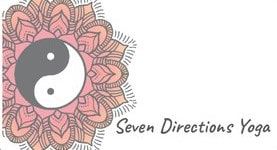"In the East techniques for achieving control over consciousness proliferated and achieved levels of enormous sophistication. Although quite different from one another in many respects, the yogi disciplines in India, the Taoist approach to life developed in China, and the Zen varieties of Buddhism all seek to free consciousness from the deterministic influences of outside forces-be they biological or social in nature. Thus, for instance, a yogi disciplines his mind to ignore pain that ordinary people would have no choice but to let into their awareness; similarly he can ignore the insistent claims of hunger or sexual arousal that most people would be helpless to resist. The same effect can be achieved in different ways, either through perfecting a severe mental discipline as in Yoga or through cultivating constant spontaneity as in Zen. But the intended result is identical: to free inner life from the threat of chaos, on the one hand, and from the rigid conditioning of biological urges, on the other, and hence to become independent form the social controls that exploit both.
But if it is true that people have known for thousands of years what it takes to become free and in control of one's life, why haven't we made more progress in this direction? Why are we as helpless, or more so, than our ancestors were in facing the chaos that interferes with happiness?" - Flow, Mihaly Csikszentmihalyi
More to come....
But if it is true that people have known for thousands of years what it takes to become free and in control of one's life, why haven't we made more progress in this direction? Why are we as helpless, or more so, than our ancestors were in facing the chaos that interferes with happiness?" - Flow, Mihaly Csikszentmihalyi
More to come....

 RSS Feed
RSS Feed